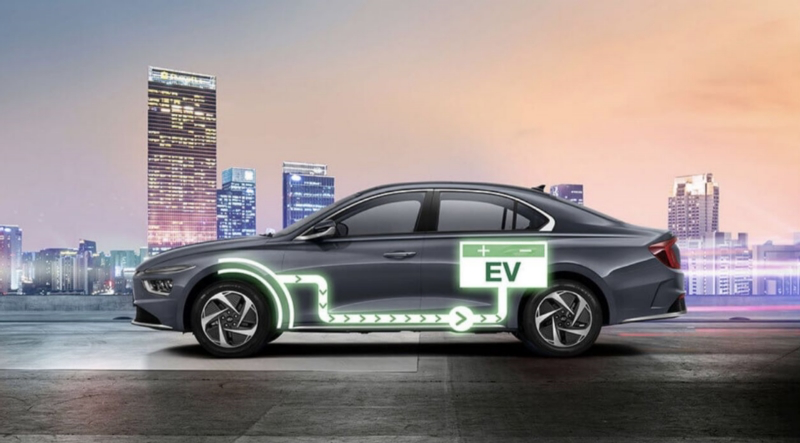El auge de los vehículos eléctricos (VE) ha sido durante mucho tiempo una innovación significativa en el sector del transporte de energía limpia, y la disminución de los precios de las baterías es un factor clave para su éxito. Los avances tecnológicos en baterías han sido un pilar fundamental de la tesis de crecimiento de los VE, y la reducción de sus costos representa una oportunidad significativa para el crecimiento sostenible de la industria y el logro de los objetivos ambientales. Sin embargo, este cambio no está exento de riesgos, así que profundicemos en el impacto de la disminución de los precios de las baterías.
En primer lugar, la caída en el precio de las baterías aporta ventajas notables al mercado de vehículos eléctricos. Con la disminución de los costos de las baterías, los fabricantes de automóviles pueden trasladar este ahorro a los consumidores. Esto significa que más personas pueden permitirse vehículos eléctricos, impulsando así una mayor adopción de los vehículos eléctricos. Este fenómeno crea un círculo virtuoso donde el aumento de las ventas se traduce en un aumento de la producción, lo que reduce aún más los precios de las baterías.

Además, la disminución del precio de las baterías también impulsa la innovación. Como componente fundamental de los vehículos eléctricos, la tecnología de las baterías mejora continuamente. Los fabricantes y las instituciones de investigación destinan más recursos a mejorar el rendimiento y la vida útil de las baterías, lo que ayudará a reducir los costes de mantenimiento de los vehículos eléctricos y a mejorar la experiencia del usuario. Los avances tecnológicos en baterías también pueden aplicarse a otros campos, como el almacenamiento de energía, lo que podría acelerar la adopción de fuentes de energía renovables.
Sin embargo, la caída de los precios de las baterías también conlleva varios desafíos y riesgos. En primer lugar, puede suponer un reto para los fabricantes de baterías en términos de rentabilidad. Si bien la demanda de baterías crece rápidamente, la competencia de precios puede intensificarse y potencialmente afectar negativamente la rentabilidad de algunos fabricantes. Esto también puede provocar la consolidación del sector, lo que podría provocar la quiebra o la fusión de algunas empresas.
En segundo lugar, la propia producción de baterías puede tener impactos ambientales adversos. Si bien el uso de vehículos eléctricos reduce las emisiones de escape, el proceso de fabricación de baterías implica elementos perjudiciales para el medio ambiente, como metales raros y residuos químicos. La industria de las baterías debe adoptar métodos de producción sostenibles para mitigar estos impactos negativos.
Por último, la caída de los precios de las baterías podría tener consecuencias negativas para la industria automotriz tradicional basada en combustibles fósiles. A medida que los precios de los vehículos eléctricos se vuelven más competitivos, los fabricantes de automóviles tradicionales podrían sufrir pérdidas de cuota de mercado, lo que generaría profundos efectos transformadores en el sector automotriz.
En conclusión, la caída en los precios de las baterías presenta importantes oportunidades y desafíos para la industria de vehículos eléctricos. Contribuye a impulsar una mayor adopción de vehículos eléctricos, reducir los costos para el consumidor y fomentar la innovación en la tecnología de baterías. Sin embargo, esta tendencia también plantea una serie de nuevos problemas, como la preocupación por la rentabilidad de los fabricantes y el impacto ambiental. Para lograr un crecimiento sostenible en la industria de vehículos eléctricos, es necesario adoptar medidas integrales para abordar estos problemas, garantizando que la caída en los precios de las baterías sea un impulsor, y no un lastre, para el éxito de la industria.
La información proporcionada por Estilista(“nosotros”, “nos” o “nuestro”) enhttps://www.stylerwelding.com/(el “Sitio”) tiene fines exclusivamente informativos. Toda la información del Sitio se proporciona de buena fe; sin embargo, no ofrecemos ninguna declaración ni garantía, expresa o implícita, sobre la exactitud, idoneidad, validez, fiabilidad, disponibilidad o integridad de la información del Sitio. BAJO NINGUNA CIRCUNSTANCIA SEREMOS RESPONSABLES ANTE USTED POR PÉRDIDAS O DAÑOS DE NINGÚN TIPO QUE SE PRODUZCAN COMO RESULTADO DEL USO DEL SITIO O DE LA CONFIANZA EN LA INFORMACIÓN PROPORCIONADA EN ÉL. SU USO DEL SITIO Y SU CONFIANZA EN LA INFORMACIÓN DEL SITIO SE REALIZAN BAJO SU PROPIA RESPONSABILIDAD.
Hora de publicación: 20 de octubre de 2023








